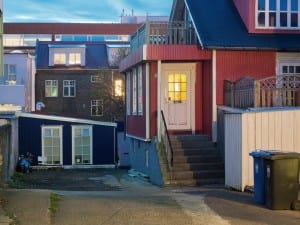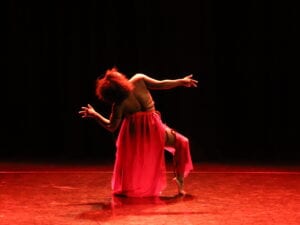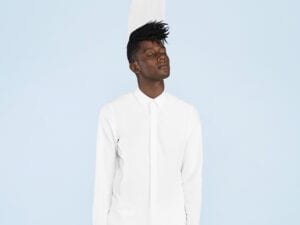Celebrating the chievements of more than 200 students graduating from London College of Communication, the 2016 Postgraduate Shows explore the best in animation, design management, documentary film, games, graphic design, interaction, illustration, photography, service design and sound arts. In conversation with Aesthetica, the college discusses this year’s visions.
A: One of the LCC Postgraduate Shows 2016 exhibitions you hosted earlier in December included a display of works from MA Photography and MA Photojournalism and Documentary Photography students. Are there any common themes between the pieces?
LCC: Much of the work from this year’s Postgraduate Shows engages with social, political and environmental contexts from across the globe. Common aims of the work on show include raising awareness, bringing to light, interrogating and offering solutions or alternatives.
MA Photography has an international reputation for conceptually driven, research-led practice, and encourages students to explore the expanding boundaries of the photographic medium. Davide Meneghello’s project, Again he holds me by the hand, questions the nature of the photographic archive to unveil intimacy in the homosocial space. Through beautiful black and white images, Davide re-contextualises archived photography to reveal what was once hidden.
MA Photojournalism and Documentary Photography helps students develop a wider vision whilst expanding their practice and challenging the potential of the medium. Images of the Arctic encased in a melting ice-block engage with issues around climate change, while photographs documenting a fishing community in Grimsby highlight the local impact of Brexit.
MA Documentary Film blends theory with practical experience, exploring the full range of the documentary genre and modes of production that have brought about recent technical innovation. Sandra Spethmann’s film follows a young wolf discovering a country that has not yet learned to accept him. For more than 150 years wolves were extinct in Germany, but with the dissolution of the Iron Curtain in 1990, wolves are back in their hundreds to reclaim their old territory. Sandra’s documentary conveys how historical and political contexts can affect wildlife and their habitats.
A: The MA Sound Arts exhibition runs until 10 December. How do you think the students have used sound as a way of interpreting the world around us and the issues within contemporary society?
LCC: The MA Sound Arts exhibition enquires into the relationships between sound and the world around us, touching on the political, environmental, architectural and musical. The show takes place in the unusual acoustic and visual space of the Dilston Grove Gallery, the first poured-concrete church in the UK.
Khaled Kaddal’s work questions the bond between the sound of politics and the politics of sounds. It investigates how the belliphonic sonic spectrum, the sounds produced by armed combat, affect the body and the memory.
Ilia Rogatchevski’s Mute Frequencies explores the characteristics of radio as an electromagnetic phenomenon. Although radio waves are ubiquitous, their presence is not felt unless technology is used to access the signals. In this way, the sound that is embedded within radio waves can be considered both present and absent in our environment.
A: MA Documentary Film students also screened their work as part of LCC Postgraduate Shows 2016. How did the students respond to diverse genres and responsibility in representing real narratives?
LCC: Our MA Documentary Film students are artistic, investigative and observational. This year’s films were shot and directed in nine different countries including Poland, China and Spain. Narratives included an impressionistic journey across Colombia, a visit to a tribal tattoo artist in the Philippines, and a melancholic portrait of a Russian city in terminal decline.
By Any Other Name by Lawrence Green explores one of the untold stories behind the infamous Moors Murders. The film follows two journalists who were assigned to the trial and investigated the case for two years in the 1980s. They reflect on the trauma that affected the nation, but also recount their personal thoughts on the case and the ways in which it has affected their lives subsequently. The narrative represents the real experiences of those involved and affected by a national murder investigation, 35 years on.
A: Could you discuss the types of stories that are showcased within these documentary films and how they differ in terms of presenting different cultures?
LCC: Our award-winning alumni go on to work all over the world, discovering and documenting different cultures, from Hollywood to Bollywood, the BBC to Al Jazeera. The projects featured in this year’s MA Documentary Film show covered a diverse range of topics, from the local to the global.
Hanna Aqvilin’s portrait documentary about Fay Presto, a renowned London magician, reflects on her everyday life as a magician, especially her struggles as an older woman in the entertainment industry. Now 70 years old, the witty illusionist has dedicated her life to being an entertainer, having performed for the Queen on several occasions and entertained celebrities for decades with her magic. The film exposes the struggle to earn a living as a performer, and, through her memories, gives a glimpse into more glamorous days during the 1980s.
Jill Damatac Futter’s film, Blood and Ink (Dugo at Tinta), is an intimately reflexive essay documentary set in a remote mountainside village in the northern Philippines. Her film explores concepts of memory, ancestry, and identity through indigenous 97-year-old tattooist Apo Whang-Od Oggay’s remarkable true story, and through director Jill’s own story after 22 years as an undocumented immigrant in the United States.
View all 17 MA Documentary Film trailers.
LCC Postgraduate Shows 2016 continue until 10 December. Find out more: www.arts.ac.uk




